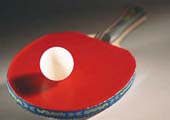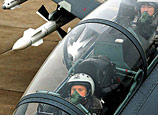
 |
| Chinese MMA fighter Liu Wenbo beats Yang Hae-jun, from South Korea, during Legend Fighting Championship events in Hong Kong on August 24, 2012. (Photo: courtesy of Legend Fighting Championship) |
The Ultimate Fighting Championship (UFC) may be taking more and more of the world by storm but so far mixed martial arts (MMA) has lacked a reach advantage in China. Indeed, only one Chinese fighter, Zhang Tiequan, has made it so far to the bright lights of the UFC, the world's biggest MMA organization. However, despite mixed results in his fighting career, Zhang serves as an inspiration to coaches and athletes trying to live their dream and has helped expose MMA to a growing audience in China.
The appeal of MMA is that it brings in martial artists specializing in many different styles of fighting with the UFC being the home of the very best. Therefore, the UFC rule-set has been adopted by Chinese coaches since 2005 as they seek to train their fighters to join these elite ranks.
However, compared with countries like the US, Brazil and Japan, China remains a virgin territory with few international-level fighters.
MMA in China
Zhang Tiequan, 35, shared his experience with the Global Times at his gym in Beijing. The team he runs with a friend, China Top Team, is home to a stable of over 10 MMA professional athletes who train there daily.
Zhang began as a practitioner of sanshou, a Chinese martial art originally developed for the military, before switching to MMA in 2005. This was due to the influence of his coach, Zhao Xuejun, who works with Xi'an Physical Education University, and is hailed as the godfather of MMA in China.
Zhang was one of four students that Zhao introduced to MMA. Three of them, including Zhang, came from Inner Mongolia Autonomous Region and one from Hebei Province.
Zhang showed the most prowess and went on to fight in the UFC although several of his teammates have stayed in the industry, becoming coaches or promoters. Dai Shuanghai, one of the original four, now works as an MMA promoter.
Zhao first realized that sanshou athletes might do well in MMA when compared to other martial arts such as wrestling, Brazilian jiujitsu and Muay Thai, as sanshou involves two fundamentals of MMA: striking and wrestling.
Zhao was introduced to Andrew Pi, who was then promoting MMA in China. Zhao convinced Pi that his original quest for pure wrestlers only was misguided. They then worked with Liu Pulei from China's national Wushu Sports Management Center to develop MMA fighters.
Zhao's instinct about sanshou fighters proved correct, according to Qiao Bo, director of business development for Hong Kong-based Legend Fighting Championship.
"Everything must keep pace with the times, and turning to MMA is a trend in the martial arts world," said Liu. Zhao agreed with Liu and noted that the principles and concept of MMA were consistent with his own martial arts doctrine.
"For wushu (kung fu), fighting should come first, instead of just posturing," Zhao told the Global Times.
 |
| We recommend: | ||
 Is there hope for Chinese football? |
 Removal of table tennis from Olympics? |
 Where should China's badminton head for? |
 Can CBA catch up with NBA? |
 Two more WTA events for China? |
 Chinese swimming with historical breakthroughs |
















 China uses PM 2.5 in weather alert system
China uses PM 2.5 in weather alert system


![]()
